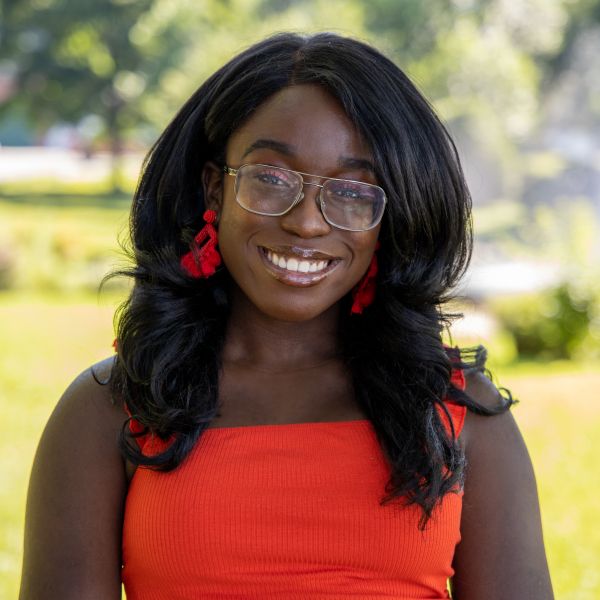Image

Bangor, ME, United States
Age: 18
Amara is a youth advocate encouraging and supporting underrepresented students in their journey to become environmental stewards and climate justice activists.
How are you using education to build more sustainable and equitable communities?
I lead a group of environmental stewards who are committed to monitoring and protecting our local water bodies. At 17 years old, I planned and secured funding for a summer institute aimed at immersing lower-income, BIPOC, and female-identifying individuals like myself, who are historically underrepresented in environmental STEM, in hands-on, environmental learning initiatives aimed at shedding light on the water justice movement. During the school year, this team tested water bodies weekly, spoke at community events to inform the public about water issues, and competed in state, national, and international science fairs presenting their sustainable solutions for water quality issues. This team is a primary example of how transformational environmental and climate change education can be for youth. Thus, I began my work with the Nature Based Education Consortium’s Climate Education and Municipal Advocacy Task Forces to ensure that all K-12 Maine youth have access to such education.
Tell us about your journey to where you are today.
Growing up in the DC metropolitan area, I did not have a connection to place with the outdoors. It wasn’t until my move to Maine, and a life-changing trip to Acadia National Park, that I was able to develop a relationship with Mother Nature. I began to immerse myself outdoors and to learn about the world’s environmental issues through a science-based lens. But it wasn’t until I attended the Maine Environmental Changemakers Fall Gathering in 2018 that my perspective shifted from a science-based one to a social one. I learned about the link between environmental exploitation and the disproportionate impacts it has on marginalized communities. In learning this, I was no longer someone who simply liked to be outside – I was a climate justice advocate. Making this link and attending this gathering was the seed, and from it sprouted all of the environmental and climate work I have engaged in since.
What advice would you give to the next generation of leaders?
To the next generation of leaders, it is important that you recognize that you have so much power. Though you are young, it is not a setback, but instead an asset. With your youth brings an eagerness to learn, a passion for what you do, no ulterior motives, and readiness to spark change. The environmental and social issues our world is facing are global, which makes tackling them daunting. But there is nothing more impactful than local change. Start in your community, as that is where you have the most impact. If one can spark change in their corner of the world, then when united, all corners of the world will be positively impacted.
What keeps you motivated, inspired, and/or hopeful for the future?
My hope for a better future comes from my generation. Youth are not the leaders of tomorrow, we are the leaders of today. Constantly in the media, youth are highlighted for the amazing initiatives they are leading to spark social change. The motivation for youth, when it comes to shifting corrupt systems of oppression, is not based on greed, nor fame, nor any other ulterior motives. The motivation youth have for wanting to better the world is simply put: to live and to have a future. This is so commendable and it gives me so much hope for a sustainable and just future.